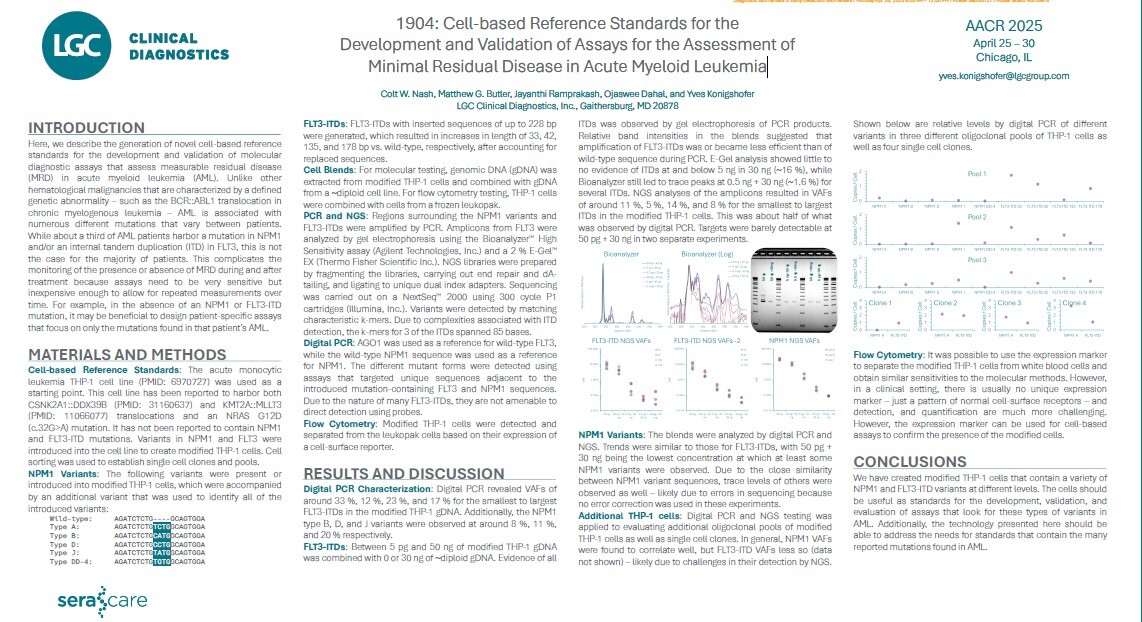Download the scientific poster now to learn more!

Here, we describe the generation of novel cell-based reference
standards for the development and validation of molecular
diagnostic assays that assess measurable residual disease
(MRD) in acute myeloid leukemia (AML). Unlike other
hematological malignancies that are characterized by a defined
genetic abnormality – such as the BCR::ABL1 translocation in
chronic myelogenous leukemia – AML is associated with
numerous different mutations that vary between patients.
While about a third of AML patients harbor a mutation in NPM1
and/or an internal tandem duplication (ITD) in FLT3, this is not
the case for the majority of patients. This complicates the
monitoring of the presence or absence of MRD during and after
treatment because assays need to be very sensitive but
inexpensive enough to allow for repeated measurements over
time. For example, in the absence of an NPM1 or FLT3-ITD
mutation, it may be beneficial to design patient-specific assays
that focus on only the mutations found in that patient’s AML.



